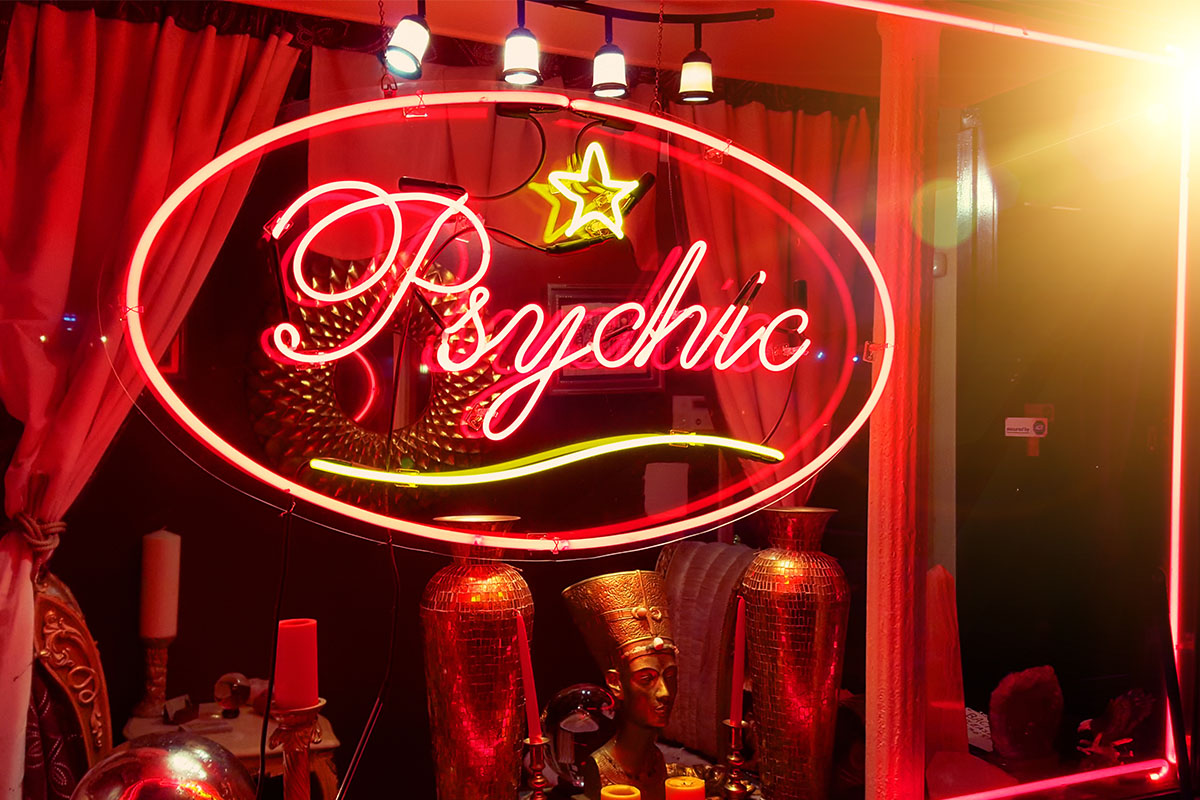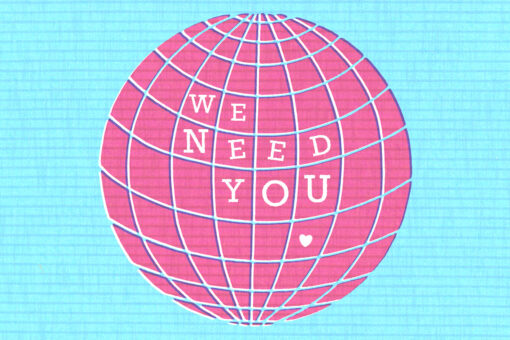One summer day before my freshman year of college, I visited a fortune teller. I was nervous about being a college athlete, navigating a boy “situation” and heading to upstate New York for the next four years. I wanted some advice.
I hoped this stranger with a card table on the sidewalk could reassure me I was making the right decisions in exchange for me handing her $90 in cash, no strings attached. I considered it an act of self-care, not a spiritual awakening. Still, I was nervous. A nice Jewish girl from Connecticut should consult with a rabbi for advice, right, not a psychic?
Sitting under an umbrella, I gave the psychic one-word answers as she carefully evaluated my life. At one point, she said, “I have no idea what this means, but someone in Spain loves you and wishes he could tell you.”
Ludicrous. For a minute, I thought I stumped her.
When I left the reading, I immediately opened Instagram. The first post on my feed was from my newly ex-boyfriend, who was on vacation in… Spain. Bizarre. Suddenly, I went from skeptic to sold. But then I started to feel strange about the whole experience, once I contemplated it with actual legitimacy. Throughout my upbringing, a hybrid of reform and conservative Jewish practices, fortune tellers were a cultural taboo and never discussed. I knew they were prohibited in the Bible and outlawed by Jewish tradition for thousands of years. Did this mean it was a sin to visit one, even in our modern day?
“The Torah is concerned with divination, fortune telling and psychics speaking on behalf of other gods,” said Rabbi Richard Freund, professor of Jewish Studies at Christopher Newport University in Newport News, Virginia. “False prophets are those that lead you to other gods. If you’re consulting psychics that don’t bring you to a path that leads you to following another religion, or anti-Jewish practices, it’s fine.”
As Rabbi Freund explained, the prohibition on seeing psychics might have a similar evolutionary path to the prohibition on getting tattoos. While some still believe a lingering misconception that Jews do not get body art because the Nazis forcibly inked our ancestors with identification numbers throughout the Holocaust, the true prohibition against tattoos is found in the Torah. In the Bible, tattoos were likely understood to be imagery of other gods and religious symbols, indicating a lack of allegiance to Judaism if one were to get inked. The issue surrounding tattoos was about the intent behind the symbol, and it might make sense to think about the issue with psychics as similarly rooted in intent.
I liked thinking about such acts as rooted in questions of intent. Modern Jews, like me, live at the intersection of modern life and religious law. To me, this means avoiding BLT sandwiches, but I won’t turn down an opportunity to learn my fate.
The psychic from the sidewalk assured me of a successful career after a pivot, a physical challenge that would shape my perspective, and two marriage proposals. No engagements yet, but her wisdom never once made me question my religion. I’m not looking for another God; I’m pretty content with what’s going on up there. I’m looking for assurance. Will I become a successful writer? Will my summer fling evolve into something more? Is there anything spooky that will happen to me?
For Rabbi Ethan Witkovsky of the Park Avenue Synagogue in Manhattan, the words of a psychic might serve as a warning, but it is important to remember God has the final word and our actions can always impact our fate.
“If you pray a bunch or do whatever to avoid something happening, God has the power to change what’s going on,” he said, though he does not think such a supernatural worldview speaks to many Jews today. “Most American Jews, and Americans in general, are not down with mystical interpretations of the universe.”
In other words, seeing a psychic can be kosher, but it is the opposite of rational.
I think I’m OK with my religious worldview being a little irrational and a little mystical. For much of Judaism, the distinction was never all that clear. Some of the most legal, or rational, parts of Judaism are rooted in mysticism. Rabbi Yosef Karo, who’s considered to be the last great writer of ancient Jewish law, wrote that he got his knowledge from an angel. If Judaism can accept mysticism influencing a legal scholar who crafted laws that people still follow, I can accept receiving guidance from a human on the side of the road.
It’s about balance. “Some people feel bound to Jewish law and other people are informed by Jewish law,” says Rabbi Jessica Lott, campus rabbi at Northwestern University.
That made sense to me, too. I believe that my spiritual life extends beyond religion. I think of my life as inspired by Jewish practice, but not bound by it. For me, I would turn to the guidance of rabbis for religious observances where I’m seeking a Jewish guide, such as advice on grieving, observing a holiday, or understanding topics that directly apply to Jews, like antisemitism, but the topics that I discuss with psychics — life goals, professional hopes and boys — don’t feel religious to me. Therefore, it seems more natural to have these discussions with a psychic, whose worldview seems to consistently match my own in a much more helpful way. I view the guidance that rabbis and psychics provide as entirely separate, but equally as important.
While I knew I could talk to a rabbi or even a friend, it felt easier for me to talk to a psychic about my worries because she wasn’t part of my broader life, in addition to being aligned with how I think about the modern world. This woman had no external motivation in telling me something, unlike my inner circle that has opinions on what’s best for me. I also felt free to disclose what I was thinking and feeling in that moment because I knew she wouldn’t spill our discussion to anyone in my life.
When I pray or attend synagogue, I feel connected to God through the prayer tunes and the presence of others, but I don’t know the meaning behind the words in the Siddur. I say the Amidah at synagogue because I learned that it’s important, not because I feel empowered to say that specific prayer. On the other hand, when seeing a psychic I’m alone and being explicitly given information in my native language. It fills a different need for reflection and engagement with myself.
Nowadays, I consult a fortune teller as often as I see my dentist, semi-annually. Psychic readings are like opening a fortune cookie or shaking a magic eight ball — something fun and lighthearted. I take the wisdom if it resonates with me, but otherwise, I shrug it off. I don’t view the psychic as godly. I love listening to someone offering friendly, albeit expensive, advice. I view it like receiving a manicure, or the occasional spray tan. Sure, I could handle life without it, but it’s nice to treat myself. It’s entertaining and sometimes offers opportunities for self-reflection and thought.
After my first visit six years ago, I sensed judgment from my Jewish best friend. When I asked why it bothered her, she shrugged. “It’s just not something I think Jewish people should do.”
Maybe not, according to some interpretations of Jewish law. But after a decade of Hebrew school and Jewish summer camp, I have learned to always ask why. And it turns out that as long as psychic readings do not serve as an alternative to God, then it is a practice that works with my religious worldview. And the universe might agree: Nearly five years later, God hasn’t punished me for choosing Madame Dorinda over a rabbi.



